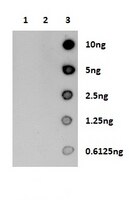Activation of classical brown adipocytes in the adult human perirenal depot is highly correlated with PRDM16-EHMT1 complex expression.
Nagano, G; Ohno, H; Oki, K; Kobuke, K; Shiwa, T; Yoneda, M; Kohno, N
PloS one
10
e0122584
2015
Mostra il sommario
Brown fat generates heat to protect against cold and obesity. Adrenergic stimulation activates the thermogenic program of brown adipocytes. Although the bioactivity of brown adipose tissue in adult humans had been assumed to very low, several studies using positron emission tomography-computed tomography (PET-CT) have detected bioactive brown adipose tissue in adult humans under cold exposure. In this study, we collected adipose tissues obtained from the perirenal regions of adult patients with pheochromocytoma (PHEO) or non-functioning adrenal tumors (NF). We demonstrated that perirenal brown adipocytes were activated in adult patients with PHEO. These cells had the molecular characteristics of classical brown fat rather than those of beige/brite fat. Expression of brown adipose tissue markers such as uncoupling protein 1 (UCP1) and cell death-inducing DFFA-like effector A (CIDEA) was highly correlated with the amounts of PRD1-BF-1-RIZ1 homologous domain-containing protein-16 (PRDM16) - euchromatic histone-lysine N-methyltransferase 1 (EHMT1) complex, the key transcriptional switch for brown fat development. These results provide novel insights into the reconstruction of human brown adipocytes and their therapeutic application against obesity and its complications such as type 2 diabetes. | Western Blotting | 25812118
 |










